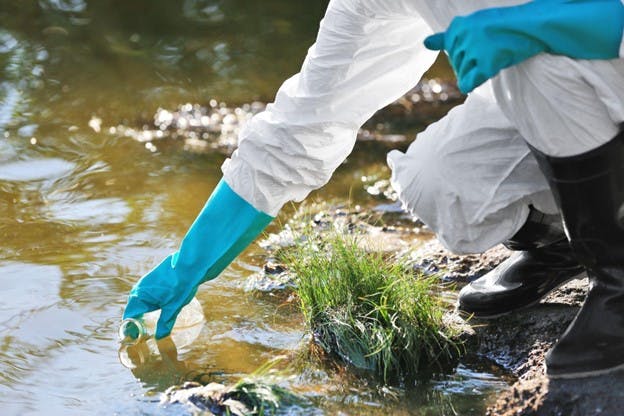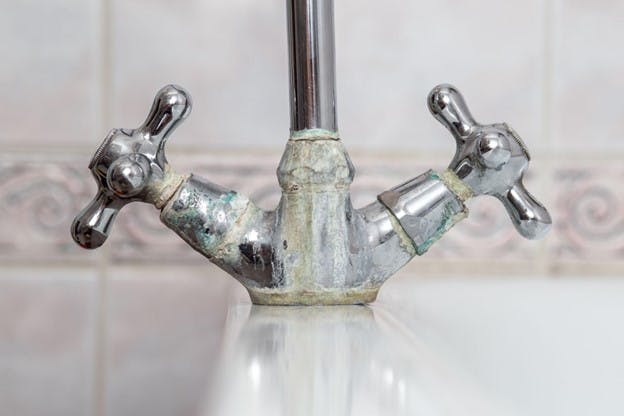🌟 New Arrival! Upgrade Your Water with Our Advanced Pitcher Filter. Shop Now
October 2023
What You Need to Know About Montreal Water Quality
Montreal, Quebec, is a city of undeniable charm. Its unique blend of history and modernity gives every block and street corner character. Like so many of Canada’s other great cities, the cultural diversity of Montreal’s population isn't just a demographic statistic but the foundation of the city’s identity and economy.
As Canada’s second-largest city, Montreal pays special attention to preserving its relationship with nature, history, and the health of its 1.7 million people. This commitment is evident in its cobblestone streets, the fact that no building is taller than Mount Royal, and the 800 kilometers of bike trails that weave through it.
But with its hands so full, we wonder if anything is falling through the cracks. Specifically, how has the city of Montreal maintained its relationship with local water resources and infrastructure?
In this article, we'll explore Montreal water quality in depth. We'll uncover the history of the city’s water systems, look at where your water originates and how it's treated, and then highlight any potential concerns every resident should be aware of.
Where Does Montreal Get Its Drinking Water From?
Running from Lake Ontario out to the Atlantic Ocean, the Saint Lawrence River plays an important role in the Canadian and U.S. economies. It allows iron ore, coal, and grain to be shipped at considerable savings to other methods.
Since 1819, when residents stopped dragging buckets of water home from local wells, the St. Lawrence River has also been the main source of drinking water for Montrealers. To keep up with demand over the last 200 years, the city has added significant infrastructure, but the river still supplies over 90% of the tap water used by citizens.
Some of this infrastructure includes the Canal de l’Aquaduc, the Atwater pumping station, and the McTavish reservoir. Following a typhoid fever outbreak in 1910, the city also began building water treatment plants. Today there are seven in operation.
How Does Montreal Treat Its Water?
The Atwater water treatment plant and the Charles-J.-Des Baillets water treatment plants are the oldest and largest in Montreal.
The water that goes to the Charles-J.-Des Baillets plant is taken from just north of the Lachine Rapids where the water is well oxygenated and lower in dangerous microorganisms. While there are several inlets to draw water into the treatment plants from, the biggest can pull up to 2,160,000 m3 of water every day.
The water headed to the Atwater filtration plant gets pulled from Canal de l’Aqueduc, just south of the Lachine Canal. After making its way through the 8-kilometer aqueduct, the water goes through a multistage treatment process:
- Screening: First the water is pushed through large screens which removes fish, driftwood, and other large debris.
- Filtering: Once the water is screened, it is then pulled through a 1-meter thick layer of sand. This naturally filtering process removes about 85% of particles and bacteria in the water.
- Ozonation: Pure oxygen is then bubbled through the water which disinfects it and kills many viruses and other microorganisms.
- Chlorination: As a final disinfection step, the water is chlorinated so it’s not reinfected on its way through the pipes to your house. The chlorine keeps you safe but it’s why your water smells and tastes a little like pool water.
Once the water goes through filtering and disinfection, it’s sent either to your home or to aqueducts high up on Mount Royal for storage. The height allows the water to be gravity fed to homes and businesses in the same way a water tower would.
How Often Is Montreal Water Tested?
It takes over 5,200 kilometers of pipes and service lines to make water service possible to homes and businesses. That’s a large area for the municipalities to keep track of and ensure nothing goes wrong. Because of this, water testing is going on regularly at six different water treatment plants in the city. These include:
- Atwater (Sud-Ouest)
- Charles-J.-Des Baillets (LaSalle)
- Dorval
- Lachine
- Pierrefonds
- Pointe-Claire
Between these six treatment plants and other testing sites, over 24,000 water samples were tested in 2022.
Is It Safe to Drink the Water in Montreal?
Tap water in Montreal is considered safe to drink by Canadian authorities based on minimum quality standards for the contaminants they measure.
Some may have a different opinion based on what safe means though. For instance, while the United States has enforceable safety levels for 90 different water contaminants, Canada only tests for 75, and those are mostly voluntary. When queried in 2015, only Ottawa tested for all 75 contaminants.
Some contaminants like atrazine which are legal in Canada are banned in Europe. Some common water contaminants like microplastics are found in water supplies around the world but currently aren’t tested for in Montreal. There are also inconsistencies in the water. For instance, just 5% of the island of Montreal’s water supply has fluoride added to it for public health. The rest of the city has none added.
Finally, our understanding of chemical contaminants changes all the time. Something deemed safe now could be found to be unsafe at a later date. In other words, legal doesn’t always mean safe.
Is Montreal Water Quality Good?
Montreal water quality faces several challenges from pollution in the St. Lawrence River.
Due to inadequately treated wastewater being discharged into open waters, parts of the St. Lawrence River are dangerous to swim in. E.coli plumes create severe conditions where concentration of bacteria can be up to 5,000 times higher than is deemed safe.
But sewage isn’t the only water contamination issue. The river is a drainage point for over 500,000 square miles of land. This means chemicals and agricultural runoff can enter the river easily — and they do. Pesticides from farming activity are often found in the river at higher levels than are even allowed by Canadian authorities.
But beyond source water issues, there are also some notable quality problems in the plumbing itself. Due to lead leaching from lead pipes and service lines, Montreal has been compared to Flint, Michigan in recent years.
According to Montreal’s water quality reports, two areas the city exceeded maximum water safety standards were turbidity and lead in 2022. Lead is a highly toxic heavy metal that poses a strong danger to children and pregnant women.
Is Montreal Water Soft or Hard?
With a hard water mineral concentration of 123 parts per million, Montreal’s water is considered moderately hard.
Water hardness is a measure of dissolved hard water minerals in your water. Because water is a powerful solvent, it tends to dissolve calcium and magnesium from the rocks and soil it passes over and take them along for the ride.
While these minerals aren’t dangerous to ingest, they can wreak havoc on your home, clothing, and skin. Specifically, hard water can:
- Stain your sinks, toilets, and tubs
- Leave a chalky limescale buildup on your surfaces
- Make your soap far less effective by combining with it to make soap scum
- Damage clothing fibers in your laundry (fading and wear)
- Strain your water-using appliances
- Clog your pores and irritate your skin
- Leave hair dry and frizzy
- Create white minerals spots on your car and dishes
- Attract mold, mildew, and bacteria
These are just a few of the common problems hard water creates. Normal water filters won’t remove hard water minerals. If you live in Montreal and want to get rid of your hard water, you’ll need a water softener or a salt-free water conditioner.
Does Montreal Add Fluoride to Their Tap Water?
Many North American and European cities add fluoride to their water supplies as a public health initiative. Fluoride is known to strengthen tooth enamel and decrease the likelihood of dental caries.
If you live in Montreal, it’s unlikely that your water is fluoridated but not impossible. There are two water treatment plants (Pointe-Claire plant and Dorval plant) that do add fluoride. These two treatment plants only account for 5% of the total water distributed to the city.
If you’re in certain parts of Pointe-Claire, Beaconsfield, Kirkland, Baie-d’Urfé, Dollard-des-Ormeaux, or Dorval island, you might have fluoridated water.
If you do have fluoride and you’d rather not, it’s important to know that regular activated carbon water filters will not remove fluoride. For that you’ll need a reverse osmosis water filtration system.
Does Montreal Have Lead in Its Tap Water?
In 2022, Montreal exceeded maximum acceptable concentrations of lead in their drinking water.
Lead is a neurotoxin with no safe concentrations in the blood of children or pregnant women according to the U.S. CDC. Even small amounts can cause learning and behavioral issues in children as well as possible permanent brain damage.
If you believe you might have lead in your water, it’s a good idea to get your water tested. If you find a lead problem, make sure any filter you use is designed to remove lead. Many aren’t.
Get the Best-Tasting Water While Living in Montreal
Montreal is a diverse city with a strong economy and an eye toward nature and health. That all makes it a great place to live even if there are a few problems with Montreal water quality. Don’t fret though, if you want the best quality water you can get while living in Montreal, HomeWater can help.
Our UPSTREAM 4-Stage Whole Home Water Filter will deliver refreshingly clean water to every faucet in your home. It will remove pollutants like dirt, rust, chlorine, pesticides, lead, PFAS, microorganisms, and more. Add a water softener to get rid of that hard water for good.
With our HomeWater 4-Stage Reverse Osmosis Under Counter Water Filter, you’ll look forward to your next glass of water. It easily reduces lead, fluoride, microplastics, chloramines, and disinfection byproducts for the best-tasting water you can get in Montreal.
You’ll be able to taste the difference with HomeWater filters.
Related Articles
September 2023
Should I Use Filtered Water in My Baby Formula?
September 2023
Water Pressure vs. Flow Rate: How They Interact
September 2023


